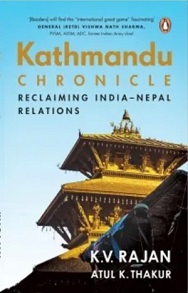Overreach: How China Derailed Its Peaceful Rise argues that China’s leadership is the one responsible for bringing backlash on themselves by overreaching. Shirk open ups the black box of Chinese politics to investigate China’s behaviour both at home and on the world stage. What makes her work different from the present conventional understanding is that she traces back the roots of overreach right from the mid-2000s, Hu Jintao (2002-2012) era. In Shirk’s previous book China Fragile superpower, 2007, she had noted the cracks in Hu’s leadership both on the domestic and international stage. Her conclusion was, “it is China’s internal fragility, not its growing strength that presents the greatest danger. The weak legitimacy of the Communist Party and its leaders’ sense of vulnerability could cause China to behave rashly in a crisis that brings it into a military conflict with the United States”. Overreach is the extension of her earlier work and intends to link the dots of the power transition from Hu’s era to Xi’s present rule.
Overreach: How China Derailed Its Peaceful Rise is a synthesis of academic articles, Journalists’ articles, discussions with experts, interviews of Chinese veteran diplomats and high-ranking officers (retd.) in Hu and Xi government, and White papers issued by China and US. The book is categorized into ten chapters; the initial six chapters discuss the question of why China pivoted from collective style leadership under Hu Jintao to Mao-style strongman leadership under Xi’s tenure, that clearly dent the Deng legacy. The other four chapters talk about Xi’s centralized rule that prioritized national security over economic development by ignoring the opposition coming from the west and from within the party.
Shirk’s opening remark “New cold war has already begun” set the tone of her scholarly work. She noted this cold war as dissimilar from the previous cold war, this time between the United States and China which are both adversaries and densely interdependent. COVID-19, Russia's invasion of Ukraine, and US stance on Taiwan bring more contentiousness between the two. Today both nations are nervous of one another that one of them might weaponise this interdependence. In the post-Mao era, China was fated to stay on collective leadership on the lines defined by Deng Xiaoping but it was the failure of Hu leadership under whom the oligarch's power in the party was used to benefit their economic interest at the expense of the country's growth. Under him, China derailed its peaceful rise by overreaching. As a result, Xi’s policy was deemed as if he was striving to reverse the policy blunders that were done in Hu’s government by disbanding the collective leadership and by resorting to a rigorous anti-corruption movement. His resolute actions earned him the same popularity and legitimacy that was once held by Mao Zedong, thus offering him an open hand to pursue even more proactive policies that serve national interest (National security in Xi’s view).
Shirk argues that the leadership style of Hu Jintao and Xi Jinping have clear stark differences but both of them are equally apprehensive about the fragility of CCP rule in a constantly changing Chinese society, and the danger from domestic problems. Despite being the economic and the military powerhouse a state of paranoia haunts Xi and his party rule. It could be visible in the “Zero-COVID policy”. Even after the mass vaccination programme, quarantine guidelines and government surveillance, extreme control wrecked the social and economic life of Chinese citizens. Shirk argues that one of the grounds behind the autocratic “zero-COVID policy” could be the initial success of the containment policy, in early 2020, from which Xi gained precious legitimacy enough for him to continue another term in the office. The trouble surfaced when Xi took this to an extreme just for the sake of defending his impression even if it cost the country a devastated economy and frustrated population.
Shirk concluded that “In order to navigate in a peaceful manner China will need to find a mechanism to restrain itself”, she further added that the mechanism will only be a transition to democracy. Although her work is well researched and supported by detailed arguments, what she overlooks here is that the transition is not necessarily always peaceful, especially post Tiananmen. Leaders like Hu and Xi were already worried about party legitimacy in changing social environment. Hong Kong case serves the best here where brutal suppression of pro-democracy supporters took place. In China any type of protest is brutally suppressed be it against long working hours or against Zero-COVID policy, media is heavily censored, there is mass surveillance supplemented by strong sedition laws and oppressive control on social lives. Even if the pro-democracy movement happens, China will be more inclined to move out of its borders and strike externally to bring back legitimacy through patriotic notions, which might create problems for the US and its neighbours. The Galwan incident between India and China could be analysed against the backdrop of this argument. Overreach is a well-structured scholarly work and unique in a way because of its unconventional starting point to access the behaviour of Xi Jinping and his obsession with National security over economic interests. Any young scholar who aspires to understand the motives behind Xi Jinping strongman style leadership can refer to this Book.










Post new comment